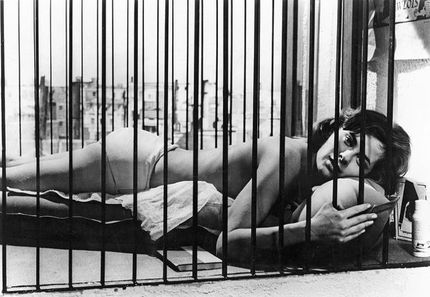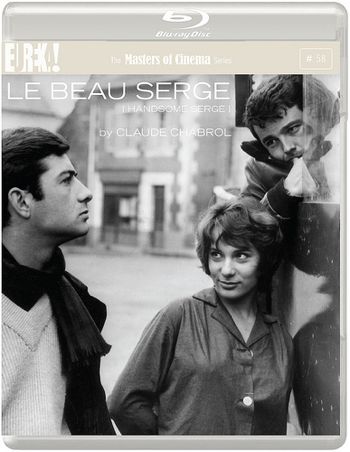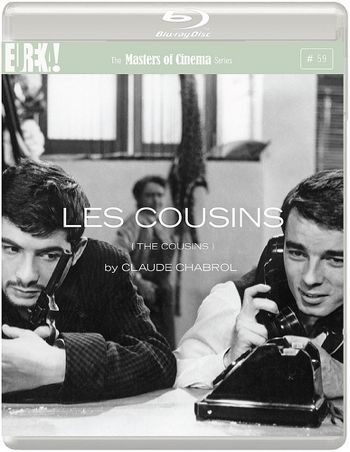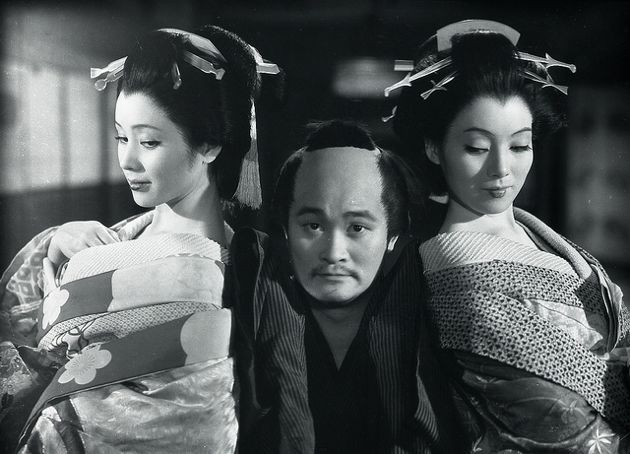Learning from the Masters of Cinema: Claude Chabrol's LE BEAU SERGE and LES COUSINS

Welcome to a new regular feature looking at the new releases from Eureka Entertainment's Masters of Cinema series. It will publish on release day, whenever a new title (or titles) hits the shelves, taking in the film(s) in question and the package as a whole.
For many, Jean Luc Godard and Francois Truffaut are widely held to be the pioneers of the French New Wave (or Nouvelle Vague) movement. It was Claude Chabrol, however, who is credited with kick-starting this ambitious and groundbreaking filmmaking coup, with his 1958 debut Le beau Serge paving the way for such classics as Le Quatre Cent Coups, A Bout de Souffle and his own follow-up, Les Cousins.
Chabrol started out, as was the case for Godard, Truffaut, Jacques Rivette and almost all of the New Wave filmmakers, as a film critic writing for Cahiers du Cinema. In its pages, these arrogant, opinionated youngsters slammed the current state of French Cinema for its outdated stuffiness and failure to speak to their generation, while praising the talents of perceived commercial filmmakers like Alfred Hitchcock, and championing the auteur theory.
Unlike many of his contemporaries, who worked their way up to directing feature films by first making shorts or assisting on other productions, Le beau Serge (aka Handsome Serge) was Chabrol's first time behind the camera, and would draw huge criticism from the French establishment. Working completely outside the studio system, using money inherited by his wife, non-professional actors and real locations, Chabrol was able to by-pass the entire self-serving, protectionist industry and deliver something completely new, that broke all the rules, but would go on to change the face of French Cinema forever.

Masters of Cinema today releases both Le beau Serge and Chabrol's follow-up, Les Cousins, on Blu-ray and DVD, and while both films stand up incredibly well on their own, they really should be seen and considered together. It was Chabrol's intention to make Les Cousins first, but he was forced to seek out a cheaper alternative project instead when he was unable to raise sufficient funds. Later, once Le beau Serge was completed, Chabrol succeeded in getting the budget of the film subsidised, on the condition that the money was immediately re-invested into a new film project.
As a result, this first-time filmmaker, who had yet to release anything, began production on his second film less than two months after his first was completed - in essence using the same pot of cash for both. Ultimately the two films, featuring much of the same cast and crew, and holding many thematic similarities, would be released on French screens a month apart. Le beau Serge would go on to win the Golden Bear for Best Film at the Berlin Film Festival, while Les Cousins proved a huge commercial success, embraced by the younger generation as one of the year's hippest films.

Le beau Serge, according to those that knew him well, was an uncharacteristically sincere film for Chabrol, and proved more than slightly autobiographical. The film follows Francois (Jean-Claude Brialy), a young man from Paris, who returns to the rural village of his youth to convalesce after a bout of tuberculosis. There he reconnects with his childhood friend, Serge (Gerard Blain), who has plunged himself into an alcoholic stupor following the death of his newborn child. Now expecting his second with wife Yvonne (Michele Meritz), Serge drinks continually, while exploring an unhealthy relationship with Yvonne's younger sister, Marie (Bernadette Lafont). Before long, Francois also becomes involved with the coquettish Marie, and indulges a growing desire to help his friend out of his funk, despite his own worsening condition.
Les Cousins, conversely, sees Blain and Brialy switch roles, with the former playing Charles, a naive mummy's boy from the countryside, who arrives in Paris for university and moves in with the bourgeois, perennial party animal Paul (Brialy). Again they both soon become entangled with the same woman (Juliette Mayniel), while exploring the polarising differences between city and provincial life, survival of the fittest and the detrimental effects of sex and alcohol. Les Cousins paints a far more cynical world view than its predecessor, more in line with Chabrol's own sentiments, but both brilliantly display the director's innovative camerawork and character-focused storytelling that would help shape the entire French New Wave.
Both discs boast excellent newly restored transfers from Gaumont, new and improved English subtitles and a solid assortment of extras. Highlighting the fact these two releases should be considered two complementing halves of a whole, each features half of Pierre-Henri Gibert's excellent 2011 documentary, Chabrol lance la Vague (Chabrol Launches The Wave), featuring a host of interviews from all the surviving principals from both productions. Each release also features one of Chabrol's short films; accompanying Le beau Serge is 1962's L'Avarice (aka Greed), Chabrol's segment of Les Sept Peches Capitaux (The Seven Deadly Sins), which also included contributions from Godard, Jacques Demy and Roger Vadim. On the Les Cousins disc is 1964's L'Homme qui vendit la Tour Eiffel (aka The Man Who Sold the Eiffel Tower), which was originally seen as the "Paris" segment in another anthology film, Les plus belles escroqueries du monde (aka The World's Most Beautiful Swindlers), alongside shorts from Roman Polanski and Godard again, amongst others. Both discs also feature the original theatrical trailers and substantial booklets including essays from the likes of Francois Truffaut and (who else?) Jean Luc Godard, as well as transcriptions of interviews with Chabrol himself.
While his name might not immediately draw the same applause as Godard or Truffaut, Chabrol was a powerhouse of French Cinema who directed more than 70 films in a career that spanned five decades, right up to his death in 2010. Together, these releases are pretty much essential for fans of the French New Wave or anyone interested in Chabrol's work and how his career began. Owing to the generous bounty of unique extras included, these discs should not be regarded merely as Region B versions of Criterion's earlier releases. There is plenty here to justify double-dipping, or even choosing these versions over Criterion's, especially for the comedic shorts and Gibert's excellent documentary.
Le beau Serge and Les Cousins are released on Blu-ray and DVD in the UK today.
Coming Soon...
Kawashima Yuzo's Bakamatsu-Taiyo-Den will be released on Blu-ray and DVD on 22 April.


Do you feel this content is inappropriate or infringes upon your rights? Click here to report it, or see our DMCA policy.






